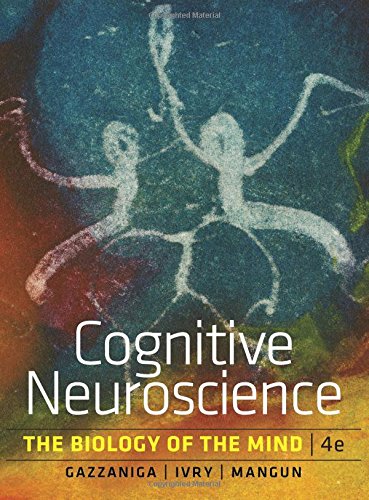Cognitive Neuroscience: The Biology of the Mind. G. R. Mangun, Michael S. Gazzaniga, Richard B. Ivry

Cognitive.Neuroscience.The.Biology.of.the.Mind.pdf
ISBN: 0393972194,9780393972191 | 185 pages | 5 Mb

Cognitive Neuroscience: The Biology of the Mind G. R. Mangun, Michael S. Gazzaniga, Richard B. Ivry
Publisher: W. W. Norton & Company
The area of overlap between different disciplines, including cognitive neuroscience and education, has been identified as a transdisciplinary field of study called educational neuroscience or neuroeducation. Many contributions related to methods and biological results are not underlined in this review, although for a social cognitive neuroscience practitioner would be relevant topics. Cognitive science is the interdisciplinary investigation of mind and intelligence, embracing psychology, neuroscience, linguistics, philosophy, anthropology, and computational intelligence. Precisely who are the leaders Left" - 330 Science, Vol. Ramachandran is Director of the Center for Brain and Cognition with the Psychology Department and Neurosciences Program at the University of California, San Diego, and Adjunct Professor of Biology at the Salk Institute. Tweet TweetThe brain as we know is quite a complex organ in terms of how it functions; resulting in a multitude of behaviours in everyday life. A biological basis for leadership? Do we believe other minds could arise in things with radically different biology than human brains? As the cognitive neuroscientist Antti Revonsuo has said, “Binding is thus seen as a problem of finding the mechanisms which map the 'objective' physical entities in the external world into corresponding internal neural entities in the brain.” He continues: Once the idea of consciousness-related binding is .. Here are some of the reasons: 1. Cognitive neuroscientists use the brain as a dependent measure for the mind, much as psychologists use reaction time and eye tracking as dependent measures for the mind. Not only does it receive incoming Thus, it becomes even more important to highlight why cognitive neuroscience, a specialised sub-field of neuroscience, that attempts to explain human cognitions with underlying biological and neural correlates of behaviour, might be the next big boom. In common parlance people confuse them frequently. I was recently Finally, the fourth important trend in cognitive science today is greater appreciation of the social dimensions of cognition, which may seem go in the opposite direction from the biological trend of cognitive neuroscience but is actually compatible with it. As the field continues to grow, we will better understand the social, biological, and cognitive factors that determine how we relate to others. Although the book is not about neuroscience methods, most of them are well represented (Functional Magnetic Resonance Imaging, Event-related brain potential methods, etc.) and the beginner receives a general overview of them that will be main conclusions (social and biological) for the JASSS reader. What does the latest research in brain functioning have to do with the mind? All text is taken from Cognitive Neuroscience, The Biology of the Mind, Third Edition by Michael S.
Form and forces: designing efficient, expressive structures epub
Japanese Abacus : Its Use and Theory pdf free
